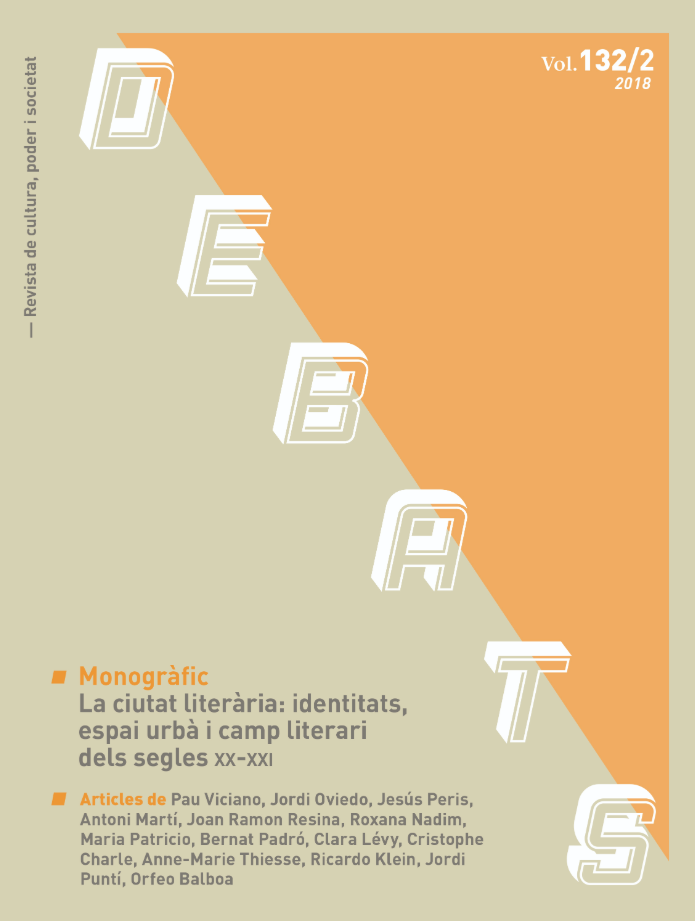Disquiet Lisbon: literary representation as an experience of an invisible city in Livro do Desassossego
Keywords:
Fernando Pessoa, guía turística, sensacionismo, heteronimia y ciudad, Simmel, Escuela de Chicago.Abstract
Fernando Pessoa’s literary work can be read as a fantastic response to the situation of experiential impoverishment (Benjamin) and indolence of the soul (Simmel) that urban environments subject individuals to. Livro do Desassossego offers an incomparable description of the possibilities and conditions of an urban representation that omits the monumental dimension of the city to give meaning to the banal situations, mediocracy of life, and routines of the social mechanisms that bring this space to life. Soares develops an aesthetic theory based on indifference, which he calls “erudition of sensitivity” and the imaginative work operating in the “inner modality of the outside”. An aesthetic theory that causes rifts to open in art in the least favourable places. Faced with the processes of disintegration suffered by the protagonist and the impossibility of completely experiencing the city, writing becomes the space of mediation that gives meaning to a wrecked individual and a blurred city, insofar as they communicate with each other. This allows a personal Lisbon to emerge, one which is allegorised and turned into literature.Downloads
Downloads
Published
How to Cite
Issue
Section
License
Without prejudice to the provisions of article 52 of Spanish Law 22/1987 of November 11 on Intellectual Property, BOE (official state bulletin) of November 17, 1987, and pursuant to said legislation, the author(s) surrender(s) free of charge its rights of edition, publication, distribution and sale of the article, for its publication in Debats. Journal on Culture, Power and Society.
Debats. Journal on Culture, Power and Society is published under the Creative Commons license system in accordance with the «Recognition - Non-Commercial (by-nc) modality: The generation of derivative works is permitted provided that commercial use is not made. Nor can the original work be used for commercial purposes».
Thus, when the author submits his/her contribution, he/she explicitly accepts this assignment of publishing and publishing rights. Authors also authorize Debats. Journal on Culture, Power and Society to include their work in an issue of the journal to be distributed and sold.











